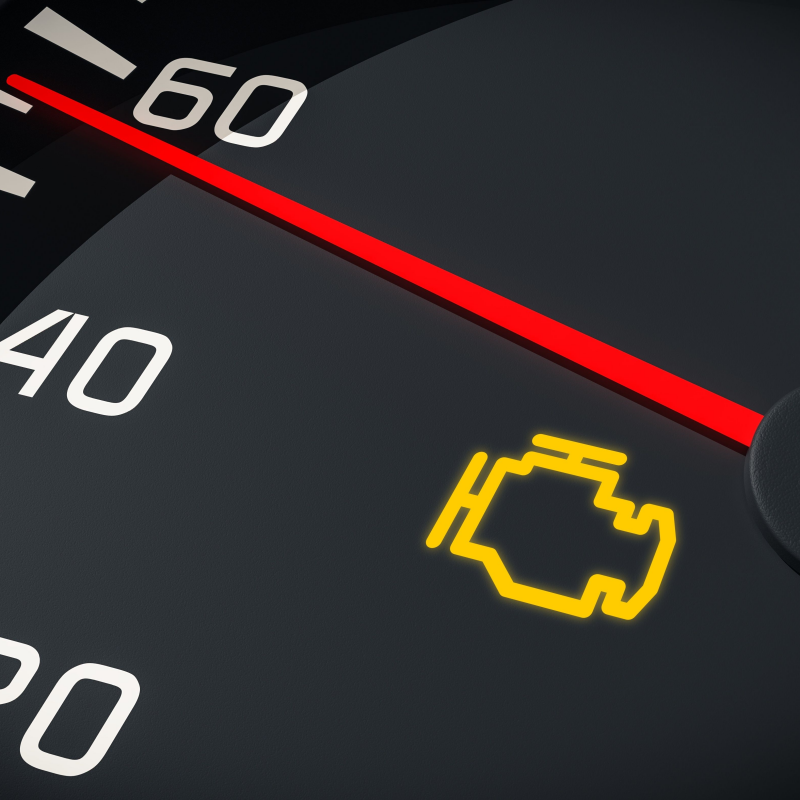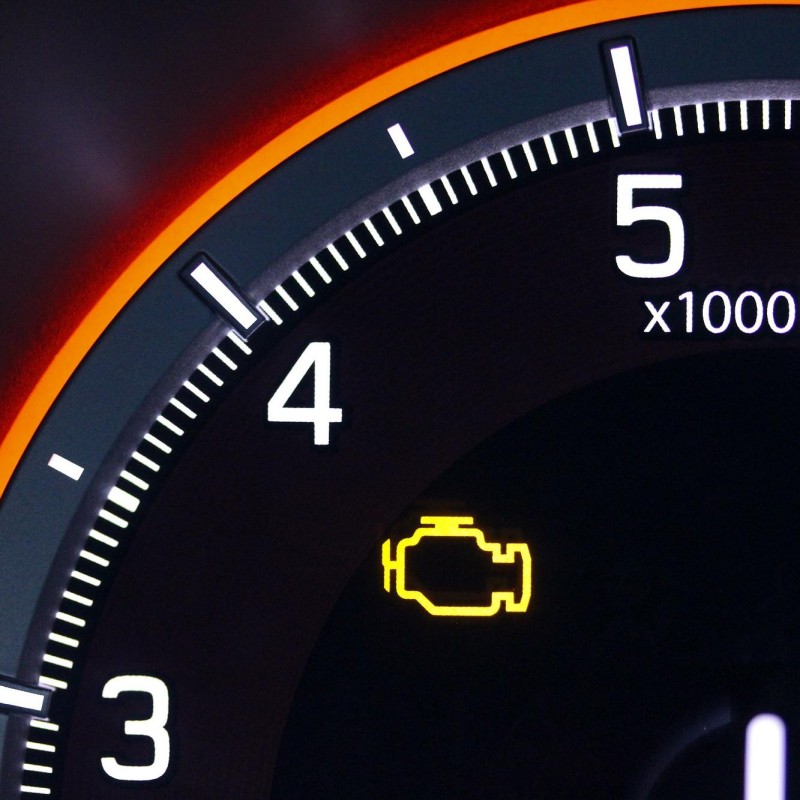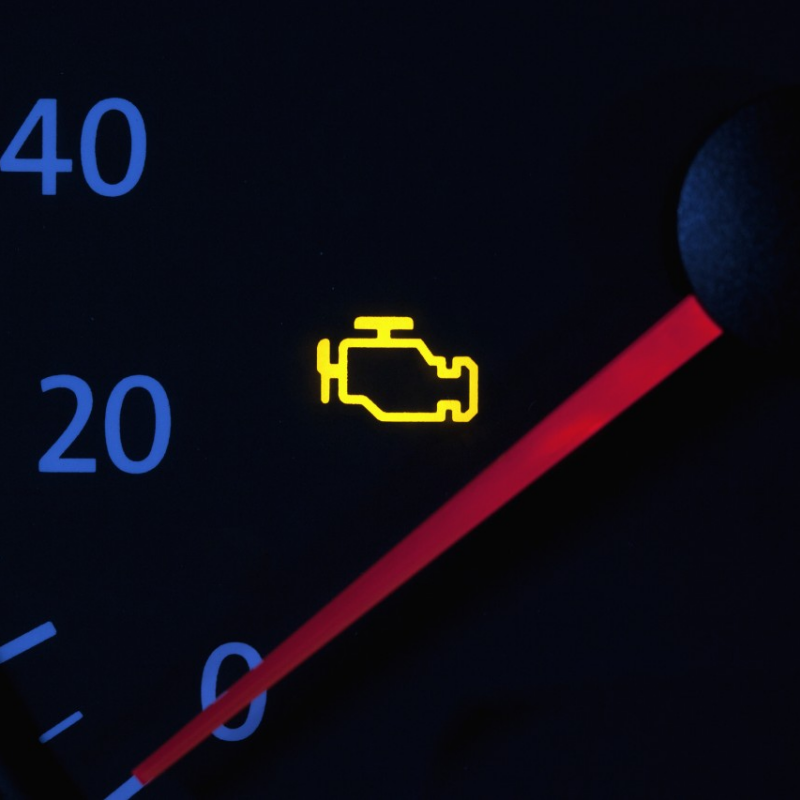Driving your vehicle normally, then suddenly seeing the check engine light pop up on your dashboard can be alarming. If your check engine light is blinking, it signifies a serious problem that requires immediate attention. Unlike a steady check engine light, which often indicates a minor issue, a blinking light typically points to a more urgent condition, such as engine misfires or significant faults in the engine management system. Ignoring this warning could lead to severe damage, costly repairs, or, worst of all, a breakdown. Understanding what it means if your check engine light is blinking can help you take prompt actions to either mitigate the problem or prevent further complications. In this article, we will explore the various reasons behind a blinking check engine light, the common problems associated with it, troubleshooting steps you can take, and the professional assistance you may need to ensure your vehicle runs smoothly.
Understanding the Check Engine Light
Before diving into what it means if your check engine light is blinking, let’s first clarify what the check engine light (often found in the car’s dashboard) is and how it operates.
The check engine light is part of your vehicle’s onboard diagnostics (OBD) system. This system continuously monitors various aspects of the engine’s performance and emissions, checking for irregularities that could indicate problems. When the OBD detects an issue, it triggers the check engine light to alert the driver. While many drivers may ignore this light, especially when it is steady, it is essential to realize that it serves as a crucial warning system.
A continuously lit light could indicate minor issues such as a loose gas cap or a faulty oxygen sensor. On the other hand, a blinking or flashing check engine light is a critical warning that suggests something more severe, typically linked to engine misfires. This situation requires immediate attention.
Common Causes of a Blinking Check Engine Light
When we address what it means if your check engine light is blinking, several potential causes come to mind. Each of these causes may require different levels of attention or repair, so understanding them is vital.
- Engine Misfire: The most common reason for a blinking check engine light is an engine misfire. This occurs when the fuel-air mixture in one or more cylinders fails to ignite properly. A misfire can cause vibrations, reduced engine power, and increased emissions.
- Ignition System Issues: Problems with ignition components such as spark plugs, ignition coils, or wires can lead to misfires. These components are responsible for igniting the fuel-air mixture in the engine, and any malfunction can trigger a flashing warning light.
- Fuel System Problems: The fuel system must deliver the correct amount of fuel to the engine for optimal performance. Issues like a clogged fuel filter, failing fuel injectors, or a failing fuel pump can lead to insufficient fuel supply and misfires.
- Overheating Engine: An overheating engine can trigger the check engine light to blink. If the engine temperature rises above the safe threshold, it can cause significant damage if not addressed quickly.
- Catalytic Converter Issues: The catalytic converter plays a crucial role in reducing harmful emissions. If it becomes clogged or fails, it can trigger the check engine light. A blinking light may indicate that the catalytic converter is experiencing excessive back pressure due to engine performance issues.
- Excessive Engine Load: If a vehicle is subjected to heavy loads or towing beyond its capacity, it can result in conditions that prompt the check engine light to flash. This may require recalibrating the engine or addressing the load issue.
Recognizing these potential causes allows drivers to act accordingly and seek appropriate solutions.
Immediate Steps to Take When Your Check Engine Light Blinks
Determining what does it mean if your check engine light is blinking is only the first step. Knowing how to respond is equally important. Here’s a guide on immediate actions you can take:
- Pull Over Safely: If your check engine light starts blinking while you’re driving, it’s essential to pull over safely as soon as possible. Turn off the engine to prevent further damage.
- Check for Obvious Issues: Once parked, take a moment to inspect the vehicle. Look for any visible signs of problems, such as smoke, strange odors, or leaks beneath the vehicle. Additionally, check to ensure that the gas cap is securely closed.
- Listen for Unusual Noises: Start the engine again and listen for unusual noises, which could indicate engine problems. Pay attention to odd sounds like knocking or excessive vibrations.
- Consider Engine Temperature: Check the temperature gauge on your dashboard. If the engine is overheating, it’s crucial to let it cool down before inspecting further or attempting to drive.
- Avoid Driving Too Far: If the check engine light continues to blink, avoid driving the vehicle any longer than necessary. Driving on a misfiring engine can lead to severe damage.
- Utilize an OBD Scanner: If you have access to an OBD-II scanner, use it to read the trouble codes. This device can provide insights into the issues triggering the light, helping you understand the problem better.
Taking these immediate steps can help minimize potential damage to your vehicle while awaiting further assistance.
When to Seek Professional Insight
While some minor issues may warrant a DIY approach, knowing when to seek professional help for a blinking check engine light is crucial. Here are some situations where consulting a professional mechanic is advisable:
- Persistent Issues: If the blinking light doesn’t resolve itself quickly and continues to flash after restarting the engine or taking basic troubleshooting steps, it’s time to consult a mechanic.
- Unfamiliar Sounds or Smells: If you notice unusual sounds or smells accompanying the blinking light, it’s crucial to seek professional help immediately to prevent further damage.
- Consistent Engine Performance Problems: If your vehicle struggles with performance issues like stalling, hesitation, or loss of power, these symptoms coupled with a blinking check engine light require immediate attention.
- Electrical or Sensor Problems: If trouble codes suggest electrical malfunctions or sensor issues, professional diagnostics will often be necessary to pinpoint the problem accurately.
- Overheating Situations: An overheating engine combined with a blinking check engine light is an urgent scenario that requires a skilled technician’s attention.
Knowing when to seek professional help can save you time and money and ensure the safety and performance of your vehicle.

Professional Diagnosis and Repair Options
Once you decide to seek professional help, understanding the diagnosis and repair process for blinking check engine lights can demystify the experience. Here’s a look at what you can expect:
- Diagnostic Scan: The first step a professional mechanic will undertake is to connect your vehicle to an OBD-II scanner. The scanner retrieves diagnostic trouble codes (DTCs) that correspond to the check engine light’s triggers.
- Visual Inspection: After scanning, the mechanic will perform a thorough visual inspection of the engine components, including checking for any visible leaks or damaged parts.
- Test Driving: In many cases, mechanics may take the vehicle for a test drive to observe symptoms directly. This process can identify issues related to engine performance that may not be evident when stationary.
- Troubleshooting and Repairs: Based on the diagnostic results, the mechanic will troubleshoot potential issues and recommend necessary repairs. This may involve replacing spark plugs, ignition coils, fuel filters, or other components showing signs of wear.
- Follow-Up Testing: After repairs are completed, mechanics often perform diagnostic tests to ensure that the repair resolved the blinking check engine light issue.
Being informed about the diagnosis and repair process will help streamline interactions with mechanics, allowing you to make better decisions about your vehicle’s care.
Preventative Measures for Blinking Check Engine Lights
Understanding what it means if your check engine light is blinking highlights the importance of preventing such issues before they arise. Here are some practical preventative measures you can take:
- Regular Maintenance Checks: Scheduling routine vehicle maintenance can help identify potential problems before they escalate. Regular oil changes, filter replacements, and tune-ups play a significant role in keeping your engine healthy.
- Monitor Dashboard Alerts: Stay vigilant about all the warning lights on your dashboard. Regularly checking for alerts and addressing them promptly can help catch issues before they develop into serious problems.
- Use Quality Fuel: Investing in quality fuel and ensuring your fuel system is clean can prevent fuel-related problems that lead to a blinking check engine light.
- Change Filters Regularly: Neglecting to change air and fuel filters can lead to engine performance problems. Make it a habit to replace these filters per your vehicle manufacturer’s recommendations.
- Check It Yourself: Familiarize yourself with your vehicle’s important engine components. Knowing basic maintenance procedures allows you to keep your vehicle operating smoothly.
Being proactive about vehicle maintenance and care can help minimize the likelihood of encountering blinking check engine lights in the future.

Conclusion
In conclusion, understanding what it means if your check engine light is blinking is crucial for any vehicle owner. A blinking light typically signifies a serious issue that requires immediate attention, often related to engine misfires or significant faults within the engine management system. Taking prompt action can prevent costly repairs and potential breakdowns, allowing you to maintain the health of your vehicle.
By familiarizing yourself with the various causes of a blinking check engine light, knowing the appropriate steps to take in response, and understanding when to seek professional assistance, you empower yourself to handle these situations effectively. Moreover, committing to regular vehicle maintenance and adopting preventative measures can significantly reduce the risk of similar issues arising in the future. Ultimately, prioritizing engine health will ensure not only your safety on the road but also the longevity of your vehicle.



